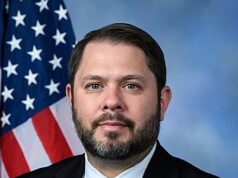CBF Welcomes Restored EPA Funding for DEP, Urges Pennsylvania to Support Its Clean Water Plan
HARRISBURG, PA – February 3, 2016 – (RealEstateRama) — The Chesapeake Bay Foundation (CBF) welcomed the news that the Environmental Protection Agency (EPA) restored $3 million in program funding to the Pennsylvania Department of Environmental Protection (DEP), and sees it as another step to get the Commonwealth back on track toward its clean water commitments.
EPA restored the funding after the Commonwealth recently unveiled a new plan to achieve its pollution reduction goals. The federal agency had withheld the funding because of Pennsylvania’s lack of progress in reducing pollution.
“Pennsylvania’s new plan to reduce water pollution includes the framework for success, but getting the Commonwealth back on track toward meeting its clean water commitments requires the funding to make it happen,” said Harry Campbell, CBF’s Pennsylvania Executive Director.
Roughly 19,000 miles of rivers and streams in Pennsylvania have been damaged by pollution. Efforts to reduce nitrogen and sediment pollution from agriculture and urban polluted runoff remain off-track by millions of pounds. DEP Secretary John Quigley has acknowledged that the state will not meet its 2017 goal.
“If Pennsylvania is to make real progress in providing and protecting cleaner water, the Commonwealth must implement the new plan,” Campbell added. “We look forward to Governor Wolf’s 2016-17 budget to be announced next week, and the legislature’s follow-through, to provide the necessary investments so that the plan can succeed.”
According to DEP, the $3 million in restored funding by the EPA will go to support conservation districts that are directed in the new plan to conduct more inspections of farms. The additional funding will also allow farmers to install more pollution reduction practices.
“The DEP estimates only about 30 percent of farms in the Commonwealth are currently in compliance with Pennsylvania’s existing clean water laws, some of which have been in place for decades,” Campbell said. “More inspectors are sorely needed. At current staffing levels, it would take almost 57 years for each farm to be inspected just once.”
The new plan also calls for accelerating the planting of streamside buffers, the most affordable solution for filtering and reducing runoff of nitrogen, phosphorus and sediment.
The plan also proposes essential steps and innovations to address the challenges of polluted runoff from urban/suburban areas, including updated permit requirements and implementation plans by local governments and the development of innovative financing opportunities.
A 2014 economic analysis found that fully implementing Pennsylvania’s clean water plans will result in an increase in the value of natural benefits in the Commonwealth by $6.2 billion annually.
Investing in clean water pays dividends. Conservation practices not only improve water quality, but can improve farm production and herd health, reduce nuisance flooding in communities, improve hunting and fishing, beautify urban centers, and even clean the air.
“Adequate funding and technical assistance are key aspects for the success of this plan,” Campbell said. “The Governor and legislature must step in and ensure that the Commonwealth lives up to the commitments it made to fellow Pennsylvanians.”













